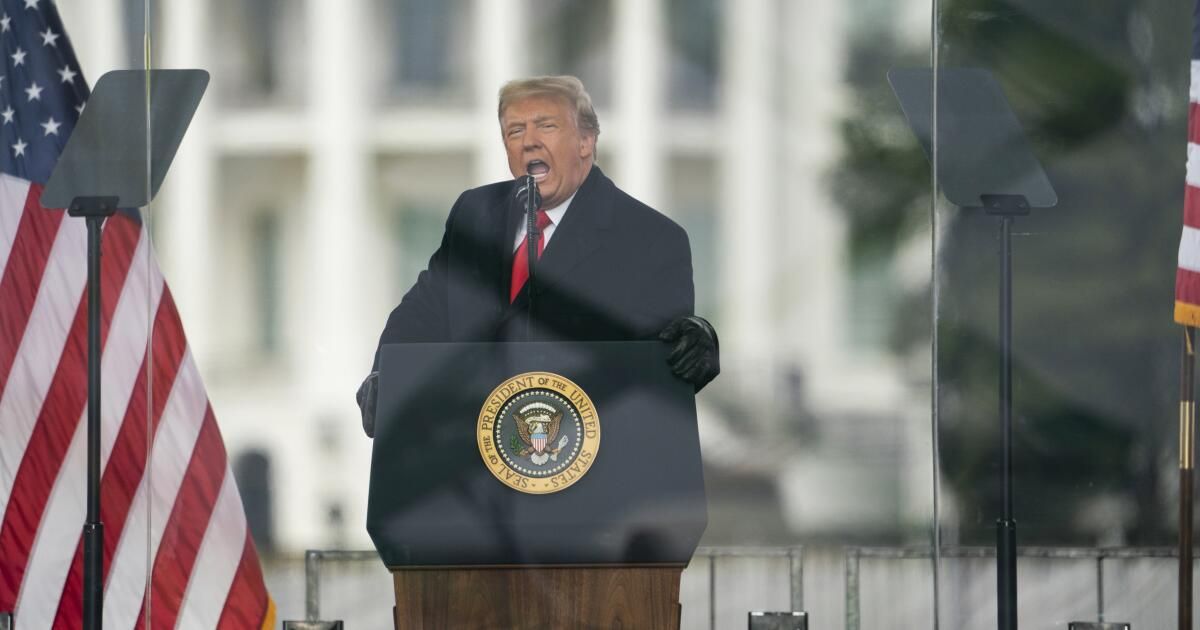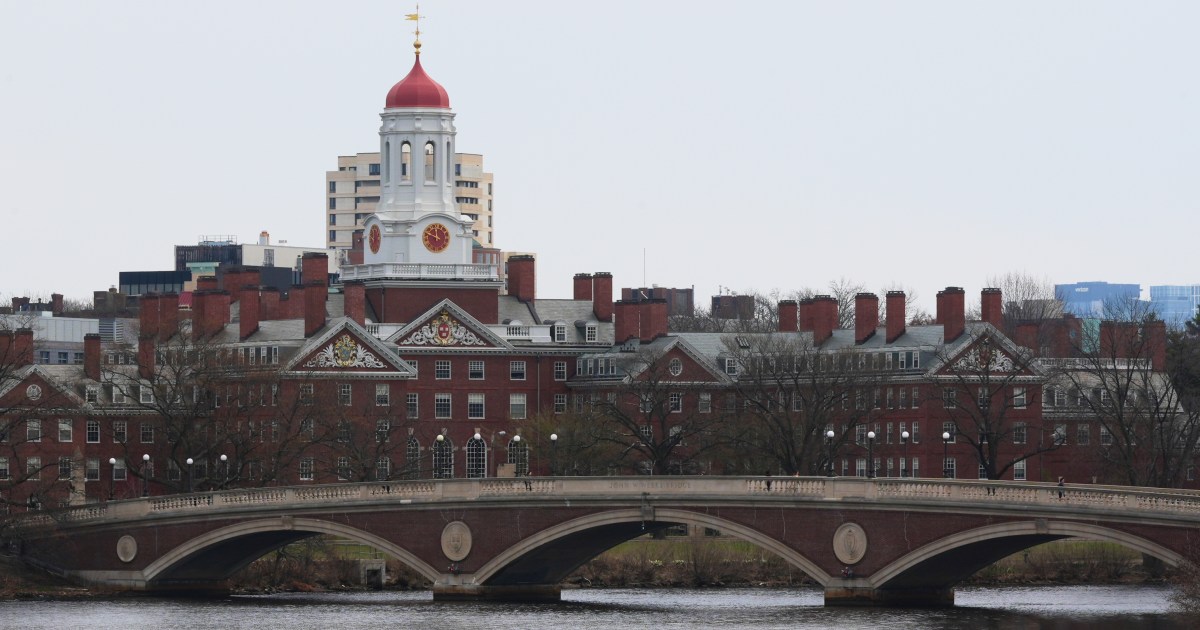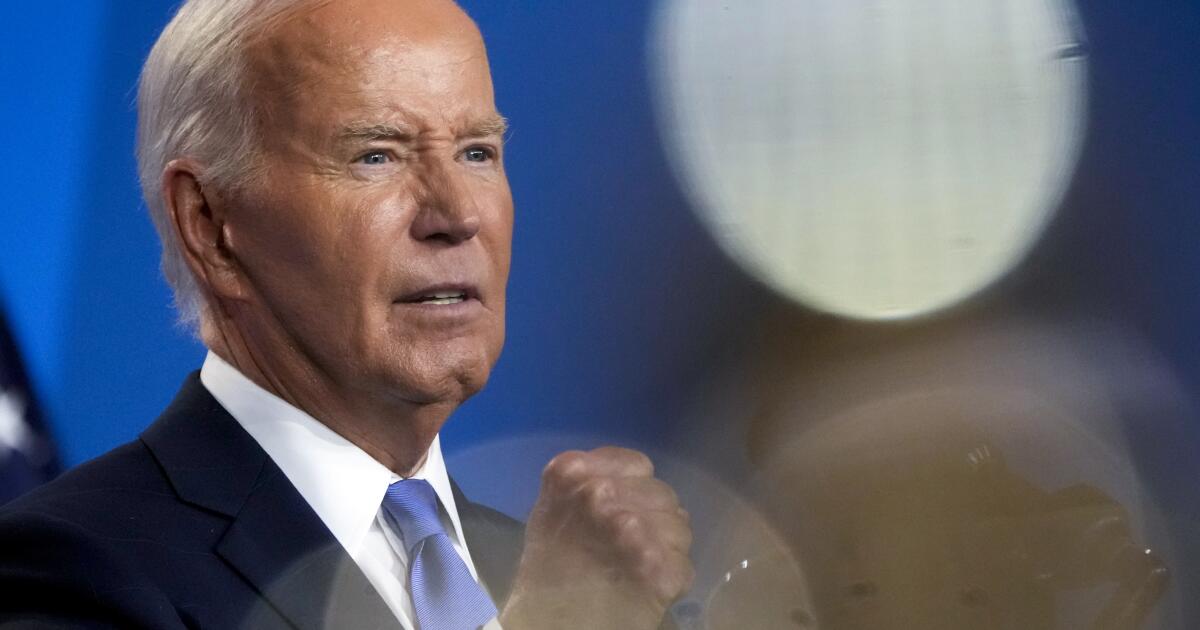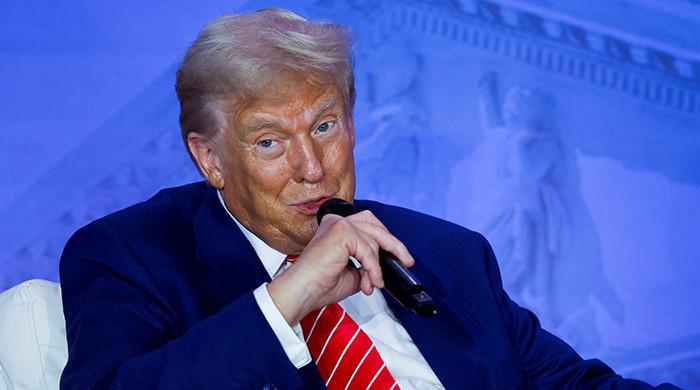The Supreme Court will hear arguments Thursday on whether former President Trump can be disqualified from running in this year's election over allegations that he incited a mob assault on the Capitol after losing the 2020 election.
At issue is whether he violated a post-Civil War constitutional amendment that says no person may “hold any office, civil or military” after taking an oath to support the Constitution and then “engage in insurrection” against the United States. Joined.
Jurists and historians told the justices in written submissions that the words and history of the 14th Amendment demand Trump's disqualification. They said members of the Reconstruction Congress were determined to prevent “insurrectionists” from gaining power and subverting American democracy.
They hoped this argument would resonate with the court's conservatives, who often insist that the Constitution must be interpreted based on its original text and meaning.
But the six conservatives are also Republican appointees, and Trump's lawyers said it would be “undemocratic” to remove the most popular Republican from the ticket.
The former president is “the presumptive Republican nominee and the leading candidate for president of the United States,” Trump's lawyers said in their final brief filed Monday. “The American people – not the courts or election officials – should choose the next president of the United States. However, as the United States threatens sanctions against the socialist dictatorship in Venezuela for excluding the main opposition presidential candidate from the elections,… [the Colorado lawsuit] Ask this court to impose the same undemocratic measure at home.”
In December, the Colorado Supreme Court became the first and so far only state or federal court to rule that Trump must be removed from the primary election because, under state law, he is not qualified to hold office.
The judges agreed to hear Trump's appeal on a fast track basis. They may also be looking for a compelling legal reason to overturn the Colorado ruling, but Trump's lawyers raised primarily procedural or technical objections.
Their main argument is that the president is not “an officer of the United States” and is therefore not covered by Section 3 of the 14th Amendment. They said officials are appointed, not elected, and that the 14th Amendment does not mention the president or vice president.
Many historians and jurists consider this statement to be absurd. It would mean that the Reconstruction Congress sought to prevent former Confederates from holding “any office” nationwide except the presidency.
Second, Trump's lawyers argued that the disqualification clause of the 14th Amendment can only be enforced by an act of Congress. They noted that federal law makes it a crime to “incite an insurrection,” but Trump has not been charged with that crime.
His third argument may gain traction among conservatives on the court. In 1995, the Supreme Court struck down an Arkansas law that imposed term limits on members of Congress, and the court said then that states cannot add new qualifications for federal officeholders.
Citing that decision, Trump's lawyers say Colorado is imposing a new qualification on presidential candidates.
In the state's defense, Colorado lawyers say its state judges are enforcing existing qualifications, not new ones.
Trump's lawyers also maintain that the former president did not participate in the insurrection.
“The events of January 6 were not an 'insurrection,' as they did not involve an organized attempt to overthrow or resist the United States government,” they wrote. The mob attack on the Capitol “lasted only about three hours, most of the participants acted suddenly, few [if any] …they carried firearms and their objectives were limited: to pressure Congress and the vice president to correct what they…thought were fraudulent election results.”
The legal brief filed on behalf of Colorado voters who brought the case included photos of the Jan. 6 attack on the Capitol.
“As president, Trump swore an oath to preserve, protect and defend the Constitution. He betrayed that oath. He refused to accept the will of the more than 80 million Americans who voted against him. Instead of peacefully ceding power, Trump intentionally organized and incited a violent mob to attack the United States Capitol in a desperate effort to prevent the counting of electoral votes cast against him… Section 3 is designed precisely to avoid giving oath-breaking insurrectionists like Trump the power to unleash such chaos again.”
The court said it would hear 80 minutes of arguments in the Trump v. Anderson case. The first is Jonathan Mitchell, former attorney general of Texas, who defends Trump. The second half will be split between two lawyers defending the Colorado voters who sued and the Colorado attorney general.












